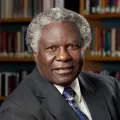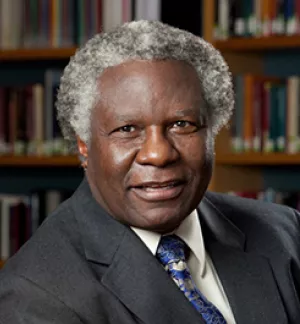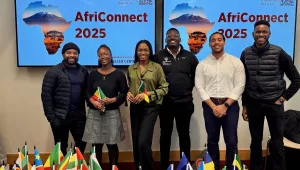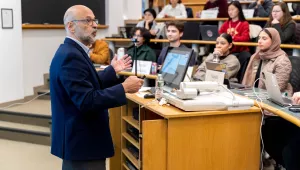In recent years the major focus of China’s engagement in Africa has been on economic diplomacy. Much of this debate has been influenced by concerns over China’s rise as an economic superpower and the preoccupation with viewing Africa through the jaded natural resource lens.
A closer look at Africa’s growing economic diplomacy reveals a more complex picture involving other important emerging market economies as illustrated by economic relations with Brazil.
Africa’s relations with Brazil highlight the emergence of BRICS (Brazil, Russia, India, China, and South Africa) as a new economic alliance that is reshaping international trading relations. According to a recent Standard Bank report, BRICS trade with the rest of the world was nearly US$5.6 trillion in 2012, about 16% of total global trade.
Trade among BRICS member countries stood at about US$310 billion in 2012, more than an 11-fold increase from US$28 billion in 2002. While BRICS trade with other emerging markets has been increasing it traded less with the European Union.
More interestingly, BRICS member countries trade more with Africa than they do with among themselves. Their total trade with Africa was US$340 billion in 2012, having increased more than 10-fold over the last decade.
This is the context in which Africa’s growing economic relations with Brazil deserve special attention. Last week Brazil’s President Dilma Rousseff visited Nigeria and signed an agreement with President Goodluck Jonathan to foster Nigeria-Brazil cooperation.
President Rousseff’s visit reinforces the growing recognition of Nigeria’s economic improvement. While addressing the 2012 Annual Conservative Party Conference, UK Prime Minister David Cameron said, “We’ve been hearing about China and India for years but it’s hard to believe what’s happening in Brazil, in Indonesia, in Nigeria.”
UK Undersecretary of State for Africa Henry Bellingham remarked, “Nigeria has averaged growth of 8.9 per cent which is really stunning. Nigeria is the world’s fourth fastest growing economy with solid growth in the next five years and beyond; this is truly remarkable.”
Such affirmations reinforce the interest of countries such as Brazil to seek closer economic ties with Nigeria. According to a joint communiqué, the Nigerian and Brazilian “Presidents underlined their commitment to promote bilateral technical and capacity building cooperation in agriculture, energy, power, petroleum, works, infrastructure development aviation and defence as well as other sectors that will be identified from time to time.”
They singled out energy, agriculture, and aviation as critical areas for economic diplomacy. Both countries share many ecological, economic, and cultural similarities. In fact, for nearly every Nigerian challenge there are Brazilian lessons. Cultural bonds between the two countries run deep, going back to the repugnant age of slave trade.
West African cities such as Lagos are home of large populations of descendants of Brazilian slaves who chose return to Africa. To celebrate these cultural bonds, “The Year of Brazil” has been chosen as the main theme of the Annual Lagos Black Heritage Festival, which will be held in October 2013.
Africa-Brazil relations, however, are not founded simply on historical and cultural affinity. They are a product of serious diplomatic efforts mounted by both countries. During his tenure, former Brazilian President Luiz Inácio Lula da Silva visited Africa more than 20 times. His vision for stronger relations with Africa was supported by his highly regarded and exceptionally competent foreign minister, Celso Luiz Nunes Amorim.
President Lula did not engage in tourism. He established 19 new embassies across Africa, bringing the number to 37 in 54 African countries. Among non-African countries, Brazil has the fifth largest number of embassies in Africa after the US (49), China (48), France (46), and Russia (38). In 2011 there were 33 African embassies in Brazil.
There are many lessons that Africa can learn from Brazil. The key is that Brazil has had a long record of creating new institutions to address major national challenges. It stands out as a leader in aviation because of having created an aerospace conglomerate, EMBRAER, whose annual revenue stands at about US$5.7 billion. Brazil offers key lessons on how to make Africa’s rapidly expanding aerospace industry safer and more reliable.
Probably Brazil's most important institutional innovation was the establishment of the Brazilian Agricultural Research Corporation (EMBRAPA) in 1973. Designed to address the diverse needs of a vast geographical terrain, EMBRAPA combined technical and credit support to farmers, two of Africa’s most pressing challenges. EMBRAPA is a public corporation with major operations in nearly all the states. It runs 47 research and service centers as well as 14 technology transfer facilities across the country.
EMBRAPA focused on human resource development: nearly 74% of its 2,200 researchers have PhD degrees, and 25% have Master’s training. Its annual budget was about US$1.1 billion in 2012. It is the largest public agricultural research corporation in the developing world.
EMBRAPA has international offices in countries such as France, Ghana, Mali, Mozambique, Senegal, South Korea, Panama, the United Kingdom, the United States, and Venezuela. It has also created the Strategic Studies and Training Institute (CECAT) to focus on tropical agricultural cooperation. Through EMBRAPA and the Brazilian Cooperation Agency, the country is advancing agricultural diplomacy in Africa.
Additional research and educational support to African countries is provided through federal agencies such as the Higher Education Coordination Agency (CAPES) and the National Council for Scientific and Technological Development (CNPq). This is done in cooperation with state agencies such as the Sao Paulo Research Foundation (FAPESP). Such cooperation builds on a strong political commitment in building scientific and technological capacity in Brazil. In 2011 Brazil announced plans to invest more than US$2 billion to finance 75,000 students to study abroad in science and technology. The government also challenged the private sector to support another 25,000 scholarships.
Such investments are building on a long tradition of creating institutions such as EMBRAPA that focus on applying science and technology to economic transformation. African countries are already emulating EMBRAPA. For example, Ethiopia has established its Agricultural Transformation Agency modeled along EMBRAPA. Large African countries such as the Democratic Republic of the Congo, Nigeria, and Tanzania as well as regional bodies such as the East African Community have a lot to learn from the lessons of EMBRAPA and other Brazilian institutional innovations.
Furthermore, states or counties in African federal republics can adopt EMBRAPA-like agencies to drive agricultural transformation. They would need close cooperation with their federal governments to achieve the same level of effectiveness.
Africa-Brazil cooperation offers new insights into the new world of economic diplomacy that transcends the preoccupation with commodities. A decade ago, Africa-Brazil trade stood at about US$1.5 billion. In just a decade it soared by 500% to reach US$9 billion.
The trade is not build on opportunistic or legacy resource exports. It is built on new foundations of international relations that reflect the emergence of new trading alliances. Africa is at the dawn of a new age of international trade relations that needs to be viewed through a new lens of economic diplomacy.
Juma, Calestous. “Africa and Brazil at the Dawn of New Economic Diplomacy.” February 26, 2013




